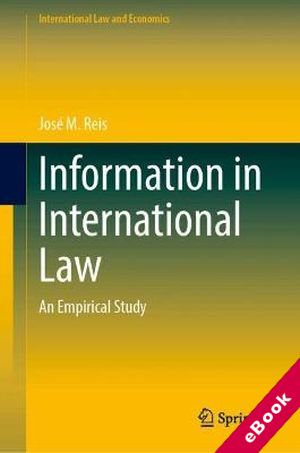
The device(s) you use to access the eBook content must be authorized with an Adobe ID before you download the product otherwise it will fail to register correctly.
For further information see https://www.wildy.com/ebook-formats
Once the order is confirmed an automated e-mail will be sent to you to allow you to download the eBook.
All eBooks are supplied firm sale and cannot be returned. If you believe there is a fault with your eBook then contact us on ebooks@wildy.com and we will help in resolving the issue. This does not affect your statutory rights.
Examining state behavior, this book sheds light on the often-overlooked role of information production and diffusion in international law and relations. Most theories of public international law and state behavior rely on a certain degree of international law-related information, such as an international legal ruling, being made public and diffused to reach various key actors such as third states or domestic actors. However, while assumptions about information being produced and diffused permeate international legal scholarly work, these assumptions have not been systematically and empirically evaluated. Based on an empirical analysis, the author challenges prevailing assumptions by systematically evaluating the accessibility and dissemination of crucial international law related information such as treaty negotiation documents or legal rulings.
Using a variety of quantitative case studies on key stages of international lawmaking and covering various issue-areas, from human rights to trade law, each chapter traverses three critical levels of analysis, namely whether international law information is public and transparent, whether the information is salient and reaches the general public, and how the information is framed by the media and political elites.
The book will appeal to students, researchers, and scholars of law, political science, and economics, as well as policy-makers interested in a better understanding of information production and diffusion in international law and the impact of public opinion on compliance with international law.